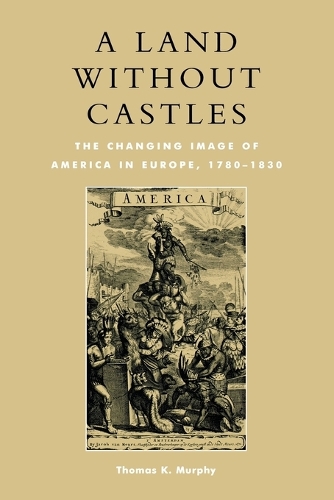
A Land without Castles: The Changing Image of America in Europe, 1780-1830
(Paperback)
Publishing Details
A Land without Castles: The Changing Image of America in Europe, 1780-1830
By (Author) Thomas K. Murphy
Bloomsbury Publishing PLC
Lexington Books
17th July 2001
United States
Classifications
Tertiary Education
Non Fiction
History of the Americas
Literary studies: general
940.2
Physical Properties
Paperback
272
Width 146mm, Height 229mm, Spine 13mm
331g
Description
This text explores the shifting history of European attitudes towards America, utilizing British and French writing from the late 18th century to the middle of the 19th century. Thomas Murphy studies a variety of literary, philosophical and political writing by Europeans in this era. The book covers four stages in the development of European attitudes: traditional theories and their modification in the 18th and 19th centuries; the influence of early American diplomacy on European attitudes; the cultural iconography of the French Revolution and England during this period; and the genre of the travel journal. The book aims to illuminate the readers understanding of the role these texts, and others, about the New World played in the formation of significant social and political developments in modern European history.
Reviews
In A Land without Castles, Thomas Murphy has accomplished a remarkable task: to the European literary discovery of the newly independent United States he brings Habermas' concept of an emerging public sphere in Europe, and finds that the conversation between Europeans and Americans both reflected and deepened that sphere. In the course of examining the process, this rich book not only reveals much about such matters as the Europeanand Americanview of the existence of slavery in an egalitarian society but also explores the artistic and literary sensibilities of Europe as it refined itself in contemplation of "a land without castles," a landscape ungraced or uncontaminated by the presence of aged ruins. Intellectual, literary, and social historians alike can profit by a reading of Murphy. -- Thomas R. West, Catholic University of America
Author Bio
Thomas K. Murphy is a lecturer in history and government at the University of Maryland, European Division.
